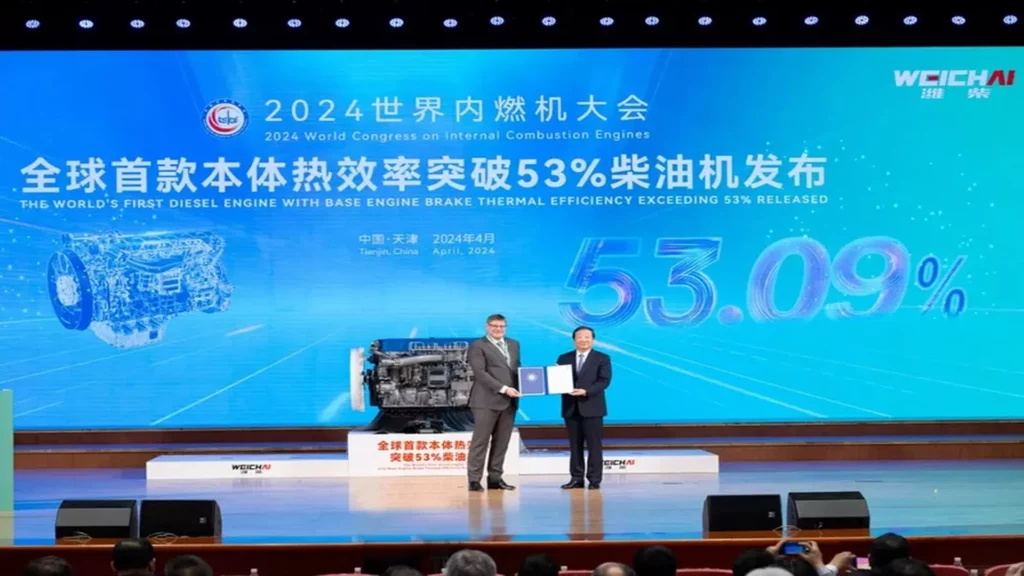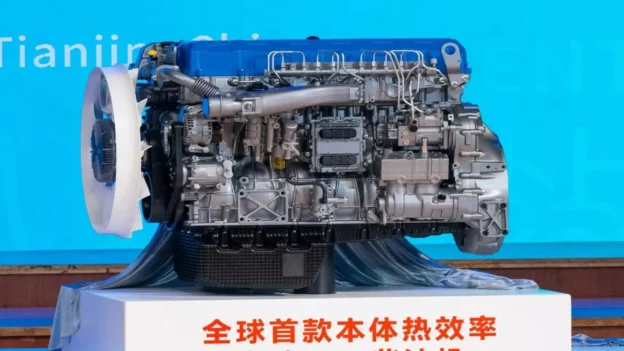For a long time, the diesel engine has been a key player in the automotive industry. However, its popularity has waned due to growing environmental concerns, strict climate laws and the rapid rise of electric vehicles. Despite its historic reputation for durability, this engine has faced criticism for its polluting emissions, such as nitrogen oxides (NOx) and fine particulate matter, prompting tougher regulations globally.
A diesel engine that sets a standard for the industry
Taking into account the increasing restrictions and the global vision of the adoption of greener alternatives, the Chinese company Weichai Power launched the world’s first diesel engine that achieves a basic brake thermal efficiency of 53.09% , setting a new standard for industry. This achievement has been certified by renowned authorities such as TÜV SÜD and the China Automotive Research and Technology Center.
The journey towards this advancement began in 2015, when the company formed a team dedicated to improving thermal efficiency . This group, made up of hundreds of doctors and thousands of engineers, has collaborated closely with national and international experts and research centers to advance technical research and expand the limits of innovation.
Increase in thermal efficiency
On September 16, 2020, the company reached a milestone by introducing a diesel engine with a thermal efficiency of 50.23% . Since then, it has continued to improve this figure, reaching 51.09% on January 8, 2022 and 52.28% on November 20, 2022 . They finally surpassed the 53% threshold recently, after more than 500 days of work focused on optimizing combustion, air intake, fuel delivery and friction reduction.
Progress includes advances in high-expansion combustion , mixed-flow pressurization, efficient fuel injection and friction reduction, achieving incremental gains that culminated in this world record. Throughout this process, the team managed to obtain 176 invention patents and 68 utility model patents .

For heavy tractors that travel 250,000 km per year, this engine can represent a saving of approximately 12,000 liters of diesel fuel per year, which translates into about 98,000 yuan (approximately 12,640 euros). Furthermore, this advance not only has implications for transportation, but also affects construction, agriculture, navigation and energy generation, contributing to economic and social development worldwide.
Without a doubt, this development redefines the capabilities of the diesel engine in terms of efficiency and sustainability and raises new possibilities for the revitalization of traditional technologies in a modern context, combining the robustness of diesel with the need for cleaner and more efficient solutions.
Follow us on social networks and don’t miss any of our publications!
Inspenet.com YouTube LinkedIn Facebook Instagram X
Source and photo: weichai.com

